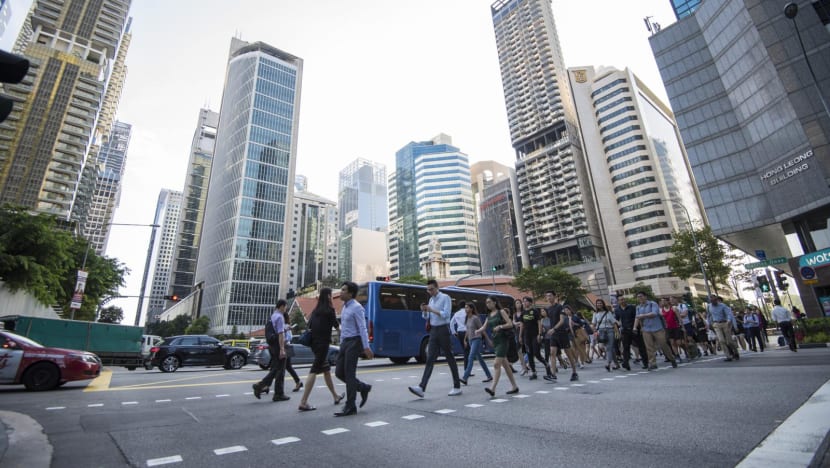Singapore Budget 2025 Breakdown: Economic Shifts, Family Support, and Sustainability
TFC React to Fiscal Priorities, Workforce Challenges, and Green Energy Ambitions
In a lively episode of TFC Singapore Budget 2025 Debate specials, host Reggie and guests dissected Singapore’s latest fiscal policies. Joined by Sher-li Torrey, Founder, Mums@Work Singaporeadvocating for women’s workforce re-entry, and Imran Johri, Marketing Director at investment platform BigFundr, the panel tackled economic resilience, aging populations, and the push for sustainable energy. Here’s a distilled summary of their candid insights.

Economic Priorities: High-Tech Focus and Workforce Realities
The budget emphasised bolstering high-value sectors like finance, advanced manufacturing, and logistics. However, Imran noted a disconnect:
“These industries create specialised jobs, not mass employment. We’re competing globally for talent, but locals risk being priced out if they lack niche skills.”
Sher-li highlighted structural gaps in retraining initiatives:
“Upskilling is critical, but employers must adapt too. A 40-year-old with new certifications still faces ageism. Training without hiring flexibility is half-baked.”
Key Economic Takeaways:
-
Tech-Driven Growth: Investments in AI, semiconductor manufacturing, and green energy aim to solidify Singapore as a regional hub.
-
SGX Challenges: Tax incentives for listings may not revive the stock market. “Investors chase higher returns abroad. SGX needs hype, not just grants,” Reggie argued.
-
Nuclear Ambitions: The surprise mention of nuclear energy signaled diversification. Imran cautioned, “Small modular reactors could offer energy independence, but public buy-in and safety debates loom.”

Family and Social Policies: Baby Bonuses and Caregiver Strains
The budget expanded support for families, notably through increased baby bonuses and caregiver grants. Sher-li, a mother of two, acknowledged the intent but critiqued execution:
“Incentives target families with 2–3 kids, ignoring those struggling with their first. Parents need time, not just cash.”
The panel debated the CDC voucher scheme’s impact. While Reggie called it a “consumer lifeline for small businesses,” Sher-li stressed systemic issues:
“Parents are drowning in childcare costs and elder care. Vouchers don’t solve the time crunch.”
Family-Focused Policies:
-
Enhanced Baby Bonuses: Up to $3,000 monthly support for families with three or more children.
-
Caregiver Grants: Recognition of stay-at-home parents’ economic contributions.
-
Aging Support: Subsidies for elderly healthcare and community programs.
Sustainability: Electric Vehicles and Green Energy
Singapore’s push for electric vehicles (EVs) and renewable energy drew mixed reactions. While EV infrastructure expands, Imran questioned feasibility:
“Trucking and cross-border logistics need regional alignment. Charging a fleet that operates in Malaysia isn’t simple.”
The budget’s nuclear energy nod sparked debate. Sher-li warned, “
Public trust is fragile. We need transparency, not just technical plans.”
Green Initiatives:
-
EV Incentives: Tax rebates for commercial EVs and expanded charging networks.
-
Renewable Imports: Partnerships to source solar and hydropower from ASEAN neighbours.
-
Nuclear Research: Pilot studies on small modular reactors (SMRs) for long-term energy security.

Workforce Challenges: Bridging Skills and Expectations
The “Great Stay” phenomenon—workers clinging to jobs amid economic uncertainty—dominated discussions. Sher-li emphasised upskilling pitfalls:
“Microlearning helps, but employers still prioritise experience. Career switchers need apprenticeships, not just certificates.”
Imran added,
“Gen Z’s job-hopping clashes with industries valuing tenure. Loyalty’s evolving, but frequent moves raise red flags.”
Job Market Realities:
-
Skills Mismatch: Demand for AI/tech roles outpaces local talent.
-
Ageism: Older workers face hurdles despite reskilling.
-
Side Hustles: Freelancing or part-time roles as a gateway for career changers.

Pragmatism Over Idealism
The panel agreed the budget balanced prudence with populism. While subsidies like CDC vouchers provided immediate relief, systemic issues—workforce gaps, aging demographics, and sustainable transitions—require long-term vision.
As Sher-li concluded,
“Policies must address why people struggle, not just throw money at symptoms. Families need time, workers need opportunity, and industries need flexibility.”
For deeper dives into Singapore’s Budget strategies, check our debate on our YouTube channel.
Stay tuned to Financial Coconut for more insights on how Budget 2025 impacts your finances.
Read more about Singapore Budget; you may also be interested in these articles:
- Singapore Budget Summary
- Singapore Budget for Working Professionals
- Singapore Budget 2025: Disbursement Timeline for Working Professionals
- Singapore Budget 2025: 6 Key Support Measures for Working Adults with Elderly Parents
- Singapore Budget 2025: Disbursement Timeline for Business Owners and SMEs
- SG Budget 2025: How Much Will Parents Save on Their Kids (Monthly) with More Support Given
- SG Budget 2025: Fresh SGD 10,000 SkillsFuture Credit for SME Workforce Transformation
- SG Budget 2025: Accelerating Clean Living with EV Incentives in Singapore
- Singapore Budget 2025: Key Support Measures for Business Owners and SMEs
- Singapore Budget 2025: Strategic Levers for Business Growth and Innovation
You can now be our community contributor and make a pitch to have your favourite personality be on our show.
Join our community group and drop us your insights on this topic.

-3.png?width=50&name=Square%20(2)-3.png)









Let us know what you think of this post